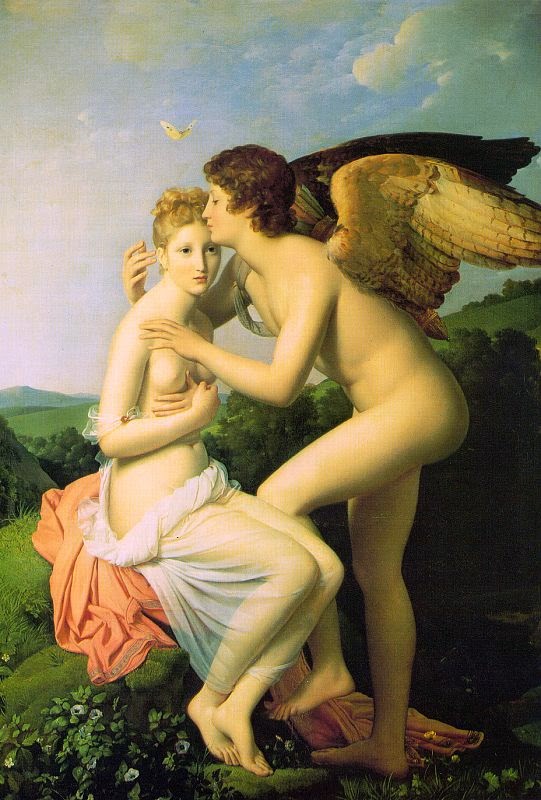I've mentioned in more than one post this week the recurring themes of envy and curiosity in the Cupid and Psyche saga but haven't really gotten a chance to elaborate uponn why I believe those to be major themes throughout the reading. In what I know of Mythology (which is limited to Greek/Roman myth), most of the action and plot development is typically driven by a single, and, as in this case, sometimes two or three, powerful emotions - love, lust, fear, anger - and the story of Cupid and Psyche is no exception.
You could say that envy is the "inciting incident" in the exposition of Apuleius' story, that is, the envy Venus feels toward Psyche and her beauty that has caused Venus' followers to turn their worship away from the goddess and toward a mere mortal. Everything that is to follow in the story results from Venus' envy. "Cupid and Psyche" is a story because of Venus' envy. However, envy is not merely a catalyst in the unfolding of the drama here. I believe Apuleius is attempting to convey what a destructive force extreme jealousy can prove to be. In her insane jealousy, Venus inadvertently drives her son into the arms of her rival, earning the very woman she loathes as a daughter-in-law. Further example of the negative power of envy can be observed through the subplot involving Psyche's sisters. Jealous of her good fortune, Psyche's two sisters are bent on her destruction. They fail, ultimately, in their plot against her happiness, only succeeding in meeting their own untimely demise for their trouble. We are meant to take away from this story, in my opinion, that envy is a detriment to our well-being because it requires so much energy input, yet reaps no benefit. Not only does one not benefit from coveting the lives and happiness of others, but he or she is bound to suffer at the hands envy.
It has been said, and I believe it to be true that it is beneficial to possess a healthy curiosity in life. Apuleius clearly feels differently as he demonstrates several times in the story's characters, namely Psyche, encounter punishment for feeding their curiosity. However, it must be noted that it is not curiosity in itself that Apuleius condemns, but blind curiosity accompanied by a reckless tendency to scorn the advice of others. For example, I have never dropped acid, but have been told for years about its dangers and harmful effects. I could hardly pass off trying the drug with the full knowledge of all the bad things that could happen to me as merely being curious. Likewise, Psyche is curious about both the nature of her disembodied husband and about Proserpine's mysterious jar of beauty, but was warned relentlessly not to look upon either. She, not surprisingly, looks upon both, and, one could say, got what was coming to her, as she was clearly warned about what would happen to her. Another point I would like to address about the nature of curiosity in this context is the fact that Psyche's response to her own curiosity was, as I mentioned, unsurprising. For this reason, I think that Apuleius is, rather than simply condemning curiosity, warning the reader and drawing attention to this facet of human nature - Man's tendency to blindly follow his curiosity down the metaphorical rabbit hole.
Apuleius does indeed display a certain sense of sympathy for the human condition, as he paints Psyche as the victim throughout, though some of her suffering was brought upon by herself.
Most of the great myths can be traced back to one or two strong emotions. Envy seems to be a reoccurring theme in Classical Mythology if you look at it closely. Second only to lust perhaps envy is the driving force behind much of Greek and Roman Mythology. Curiosity alone is seen less often as the key motivation in Mythology which serves to illustrate that curiosity in itself is not detrimental, but when paired with a reckless nature - which human beings are wont to possess - well, you know what they say about the cat!



No comments:
Post a Comment